Yui Asaka confesses: “I became greedy in many ways after turning 50.
Special Interview: How the "Idol Four Heavenly Kings" appeared in a commercial for RIZAP and became a professional mahjong player. Blowing up without a stuntman! "Skeban Keisatsu" (Sketban Keisatsu)," in which he was constantly injured, picking up girls on a singing show, sharing a secret with Akina Nakamori, and more.
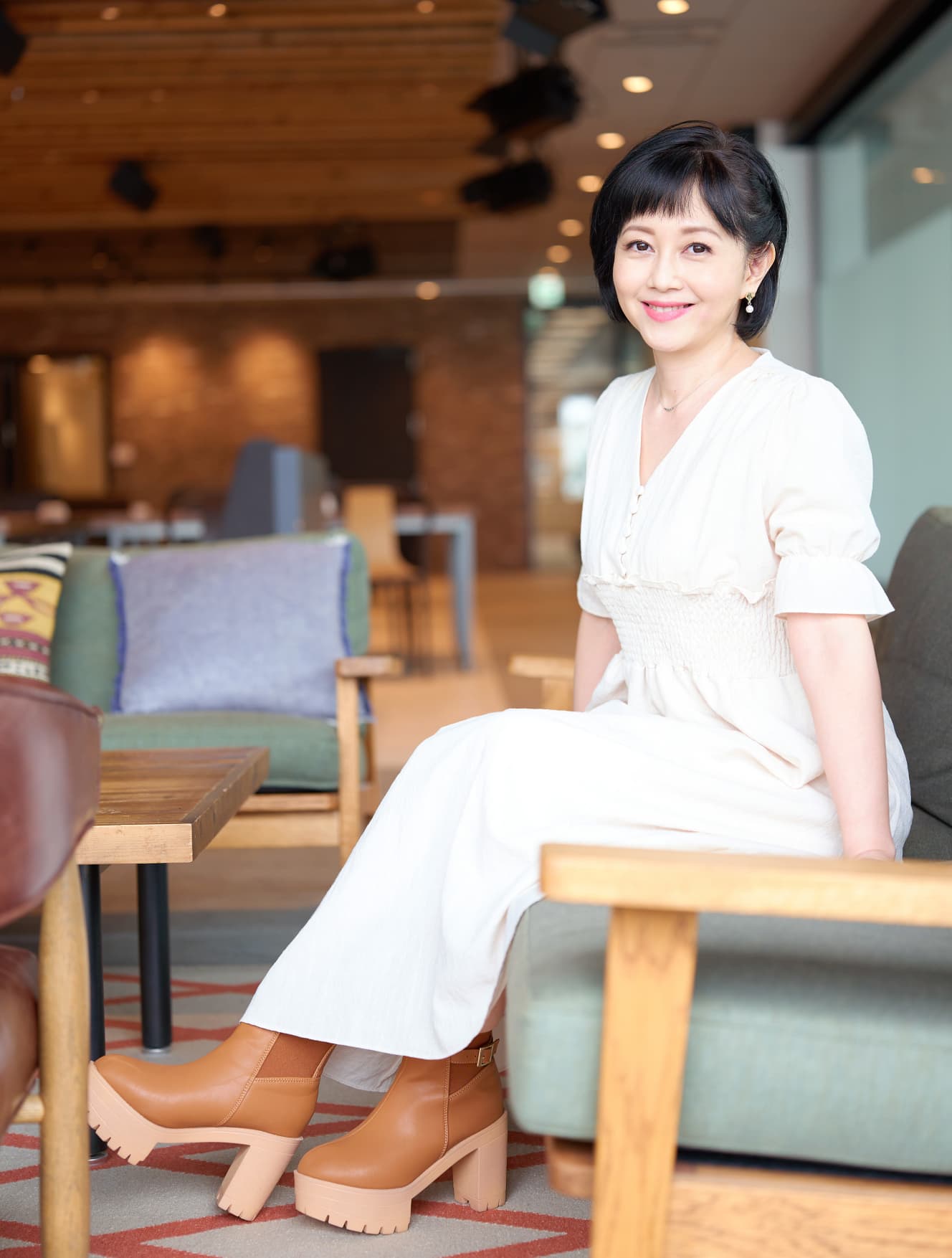
Everywhere I go, there are crowds of people, and I can’t get on trains or buses. I couldn’t even eat properly, and I could barely eat an onigiri (rice ball) in the three minutes I had between filming and interviews. At the time, there were many singing programs such as “The Best Ten” (TBS), “Uta no Top Ten” (NTV), and “Night Hit Studio” (Fuji TV), and while singing, I would ask myself, “Which program am I on now? I used to lose track of where I was and what I was doing while singing (laughs).
Yui Asaka, 52, who was called “Japan’s busiest idol,” looks back on the past.
But that was not the case with “Skeban Keisatsu III: Shoujo Ninpocho Denki” (Fuji TV series, 1986-87). She spent the first year and a half after her debut in a period of disappointment.
Her first TV appearance was in a program called “Expo Scramble” (TBS), which was broadcast live from the Tsukuba Expo site. It was a program called “EXPO Scramble. I served as an assistant to the male announcer who hosted the program, but I vividly remember that the program ended without me saying a single word. I only auditioned for the show because I wanted the “red stereo component” that I saw advertised in the newspaper as a side prize, and I had not originally planned to become an idol, so I didn’t really understand the situation I was in. My debut song “Natsu Shoujo” was in the 100th place on the Oricon charts. Normally, I would have been disappointed, but I was happy that someone had bought my record (laughs).
Asaka laughs, “I once sang on a ‘stage’ made up of cardboard boxes in the corner of a department store parking lot.
“I was surrounded by housewives, and I sometimes wondered, ‘Why am I singing here? I sometimes wondered, ‘Why am I singing here? But I couldn’t let the sound of the time sale and Hokkaido product exhibition going on right next door get the better of me! I was doing my best to keep up with the voices of the time sale and Hokkaido product exhibition going on right next door.
He recalls that his Miyazaki accent paid off during the audition for “Skeletor,” which marked a turning point in his career.
I read the script for “Skeleton Cop II” in front of the director and producer, and when I saw Yoko Minamino’s (55) Tosa-ben (Tosa dialect) lines, I turned on my Miyazaki accent, and for some reason I spoke with it in full force (laughs). He thought it was funny, and afterwards he asked me, ‘Are you good at climbing trees? He said it was funny, and after that he asked me, “Are you good at climbing trees? And the exchange went on and on. It seems that they were looking for a girl who was like a monkey, not like the “cool young lady” Yuki Saito (55) and Ms. Minamino, who were the first generation of the series.
The show was originally scheduled to air for six months, but due to the popularity of the show, it was extended to a year and even made into a movie. The filming was grueling, with many action scenes, and there was no end to the fresh wounds.
There was a scene in the first episode where a house was blown up, but it was not done with CG, and no stuntmen were used. And there was only one blow-up, so there was no rehearsal. The only safety measure we had was a line drawn on the ground, and we were warned, “It’s not safe to go outside this line” (laughs). (Laughs.) You can’t even look down when you’re acting! (Yuka Onishi (54) and Yuma Nakamura (52), who played the three sisters, were in a scene where they were approaching a house that was about to be blown up, and the explosion was much bigger than they had imagined. We checked with each other right after the cut.
In 1988, “C-Girl,” the commercial song for Kanebo Cosmetics, became a big hit, and she also had a string of hit songs, including “Cecile. She became a regular on singing TV shows and was called the “Four Heavenly Kings of Idols” along with Miho Nakayama (52), Shizuka Kudo (52), and Yoko Minamino.
When I appeared on singing shows, I felt that the artists around me were tense. It was said that if you didn’t do that, you wouldn’t be able to survive in this world. For example, when the camera was pointed at a group of girls, everyone would step forward. I would pull back and look at them and say, “Well, that’s okay! I was so detached that when I looked at the footage later, I didn’t see their faces at all.
It was not uncommon for male idols to give me notes with their phone numbers written on them during the recording sessions. We didn’t have cell phones back then, and electronics were a hurdle. Moreover, those notes were basically just numbers, and when I looked at them later, I couldn’t tell whose number it was (laughs). In my case, the office had a policy that prohibited me from interacting with co-stars, whether male or female, and I took it very seriously. Yuka and Yuma are now connected through a group LINE, but at the time I didn’t know their contact information, so we never saw each other again after “Skeban Keisatsu” ended. There was very little socializing among idols.
In the singing program, he performed with senior idols and big-name singers. One of the most impressive singers was Akina Nakamori (57).
She had an aura about her that made it difficult for me to talk to her, but Akina said to me in that husky voice, “Yui, are you okay? Don’t be nervous,’ she said in that husky voice of hers. My heart was racing just to hear her approach me.
I remember when a special red chair was made to commemorate Akira Terao’s record of 12 consecutive weeks at No. 1 for “The Best Ten” for “The Ring of Ruby,” and I tried to sit down secretly before rehearsal when no one was around, but Akina-san saw me (laughs). I remember how she laughed at me and said, “It’s okay, isn’t it, just a little bit? I remember her laughing at me.
She is cautious and overthinks things. He was not good at taking on new challenges, but as he got older, he began to change. In the summer of 2008, she appeared in a commercial for “RIZAP. She showed the before and after of her body, which had successfully lost about 9 kg. She stunned the public.
She said, “In the past, I would never have been able to show the before and after of my body to the public. In fact, I refused to perform once. But I thought I might be able to see a new me. I had to go on that diet in total secrecy, and people around me were worried about how skinny I was getting. When I was OK with the news, I said, “Ta-da! ‘ and when I reported it, all my family and acquaintances were happy. I was happy not only that I had built up my body, but also that my own feelings had become more positive.
In August of this year, it was reported that she had passed the professional test of the Japan Professional Mahjong Association.
After turning 50, you start to see what’s ahead in life,” she said. I started playing mahjong when I was 23 years old, but at first I only played once a year with my father. I admired Yosuke Ide’s intellectual way of playing mahjong, which is like solving a difficult mathematical equation with many calculations, and I read many of his books, but I never studied beyond that. However, I always had a desire to learn more about the world of mahjong.”
She also took on a new challenge in her activities as a singer. On the occasion of the 37th anniversary of her debut, she released almost all of the songs she had released to date (157 songs).
I hope that people of my generation will not only listen to my songs as nostalgic memories, but also that people in their teens and twenties will have more opportunities to listen to songs like ‘C-Girl,’ ‘Cecile,’ and ‘Believe Again.
In September, they will hold their first Billboard Live concert (3rd in Osaka and 11th in Yokohama). She says she will continue to enjoy and challenge herself to do what she finds interesting while cherishing the encounters she has with people.
Recently, while singing “C-Girl,” I have been thinking, “I’m not a girl anymore,” or “I wonder how long I can sing this song” (laughs). But because everything is limited, we feel love and sadness. I want to cherish the limited time I have.
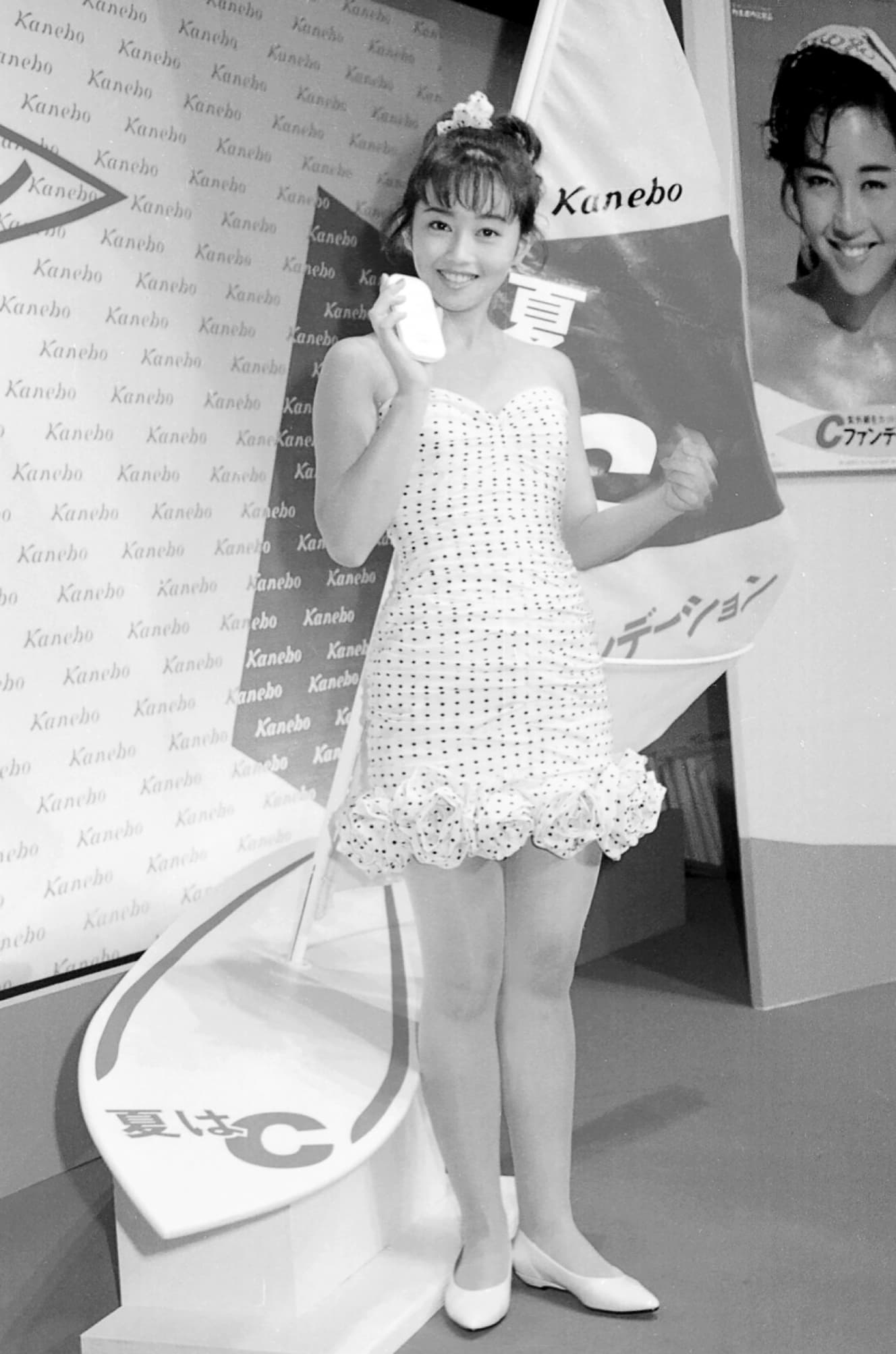
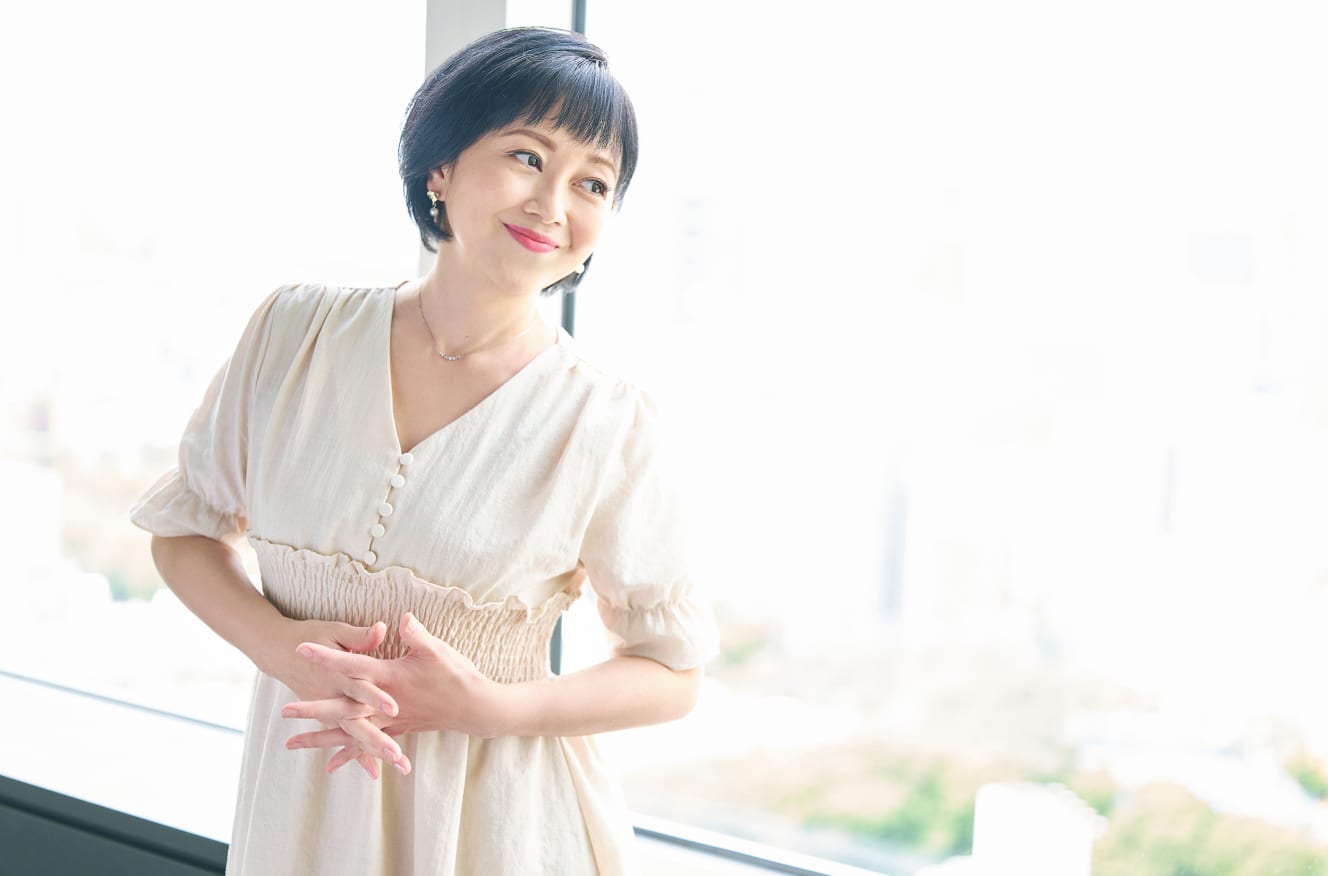
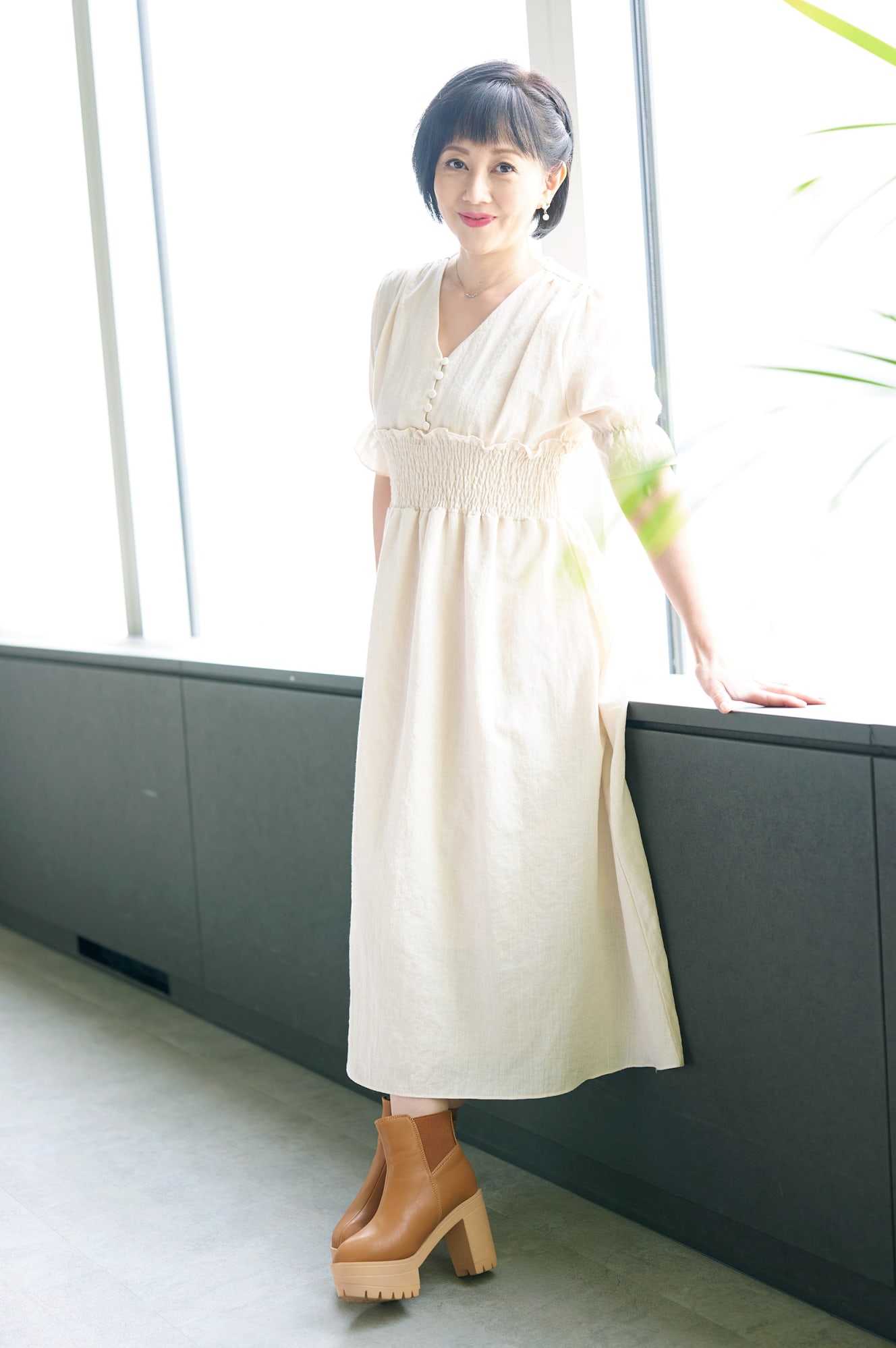
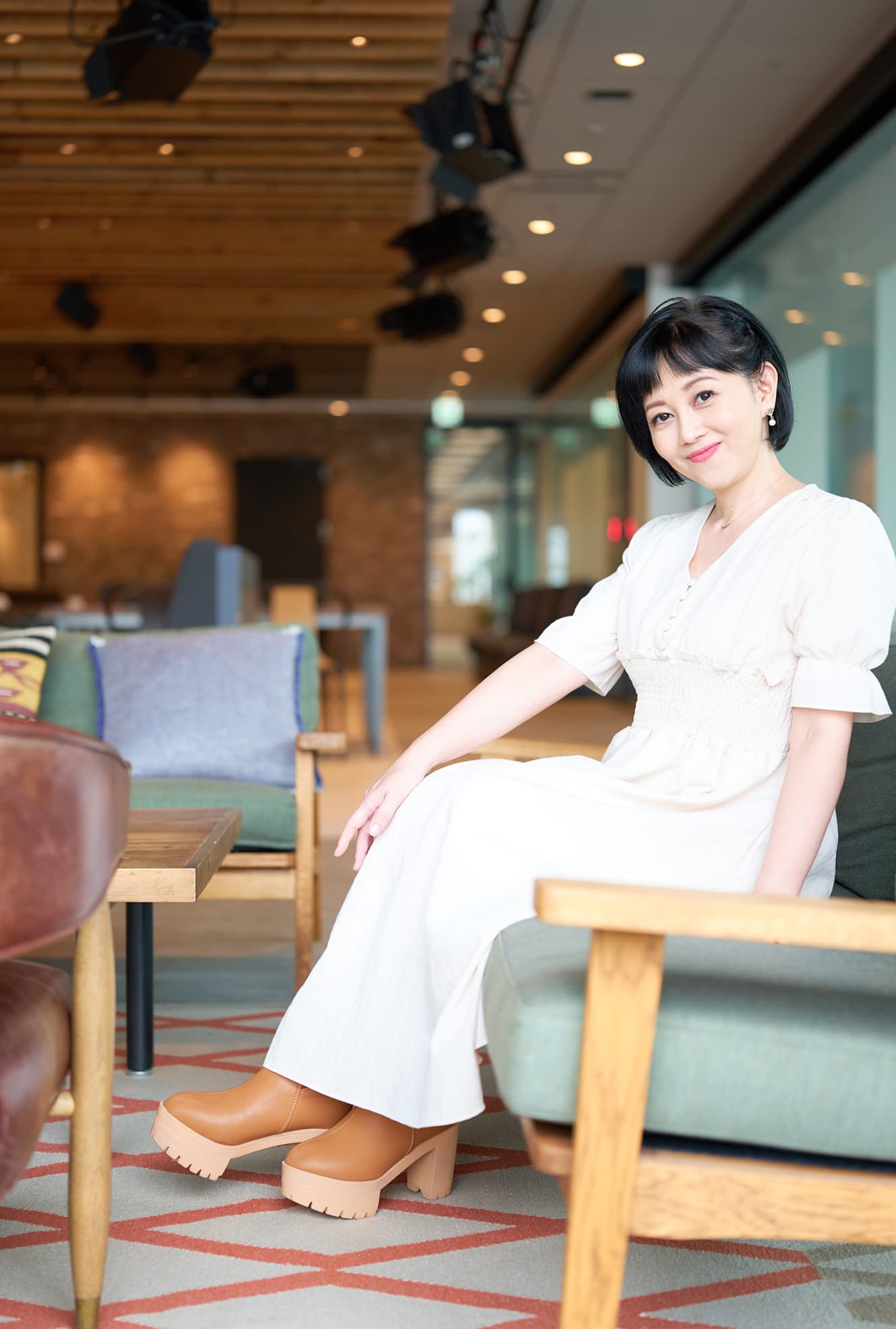
From the September 23, 2022 issue of FRIDAY
Interview and text by: Masao Kurihara Photographed by: Shogo Murakami